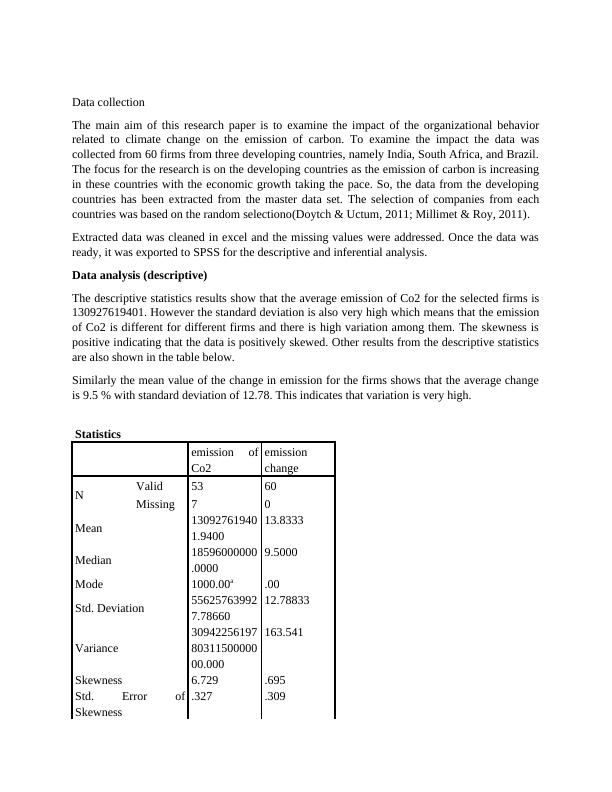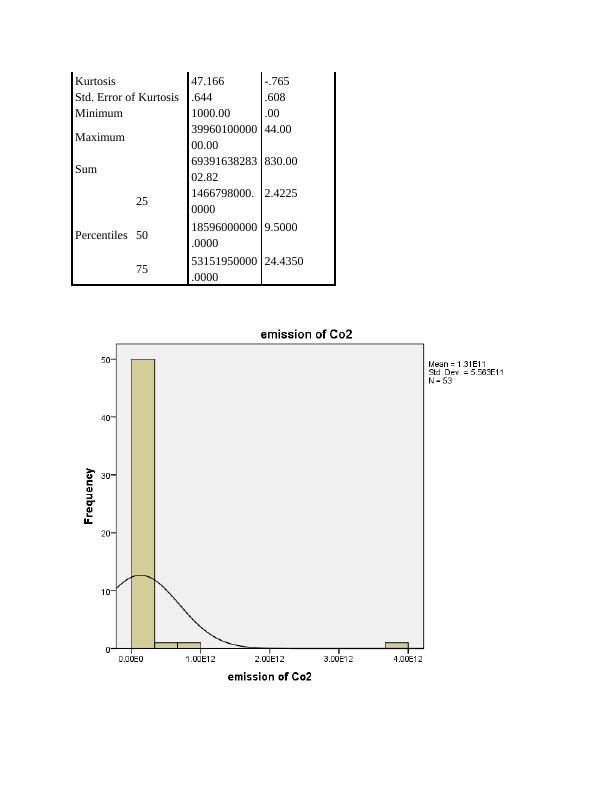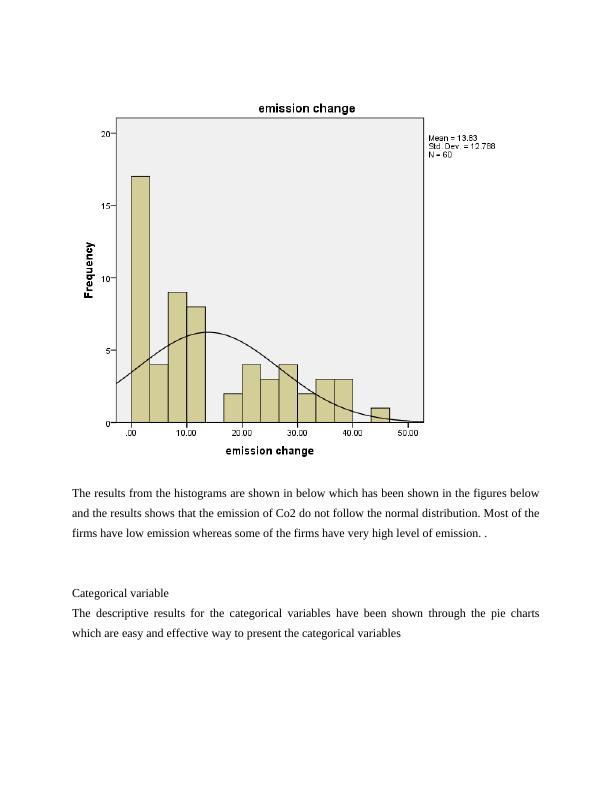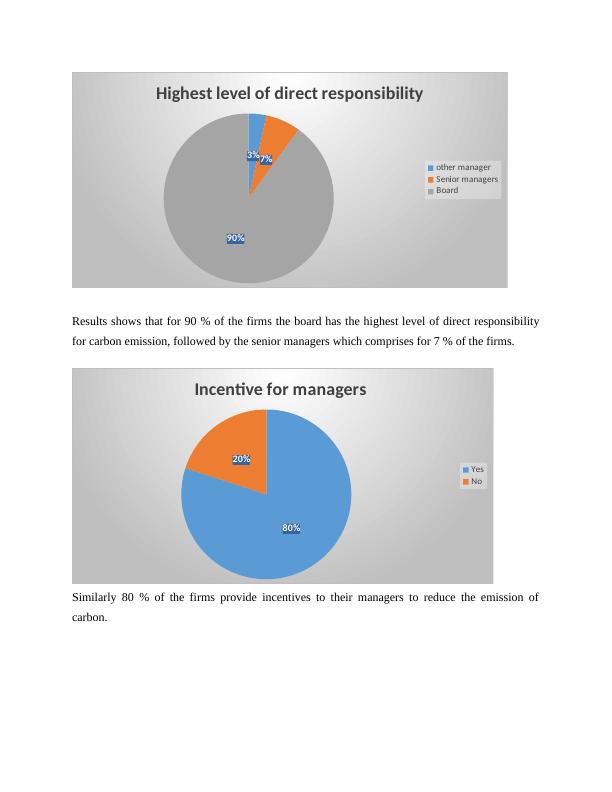Impact of Organizational Behavior on Carbon Emission: Data Analysis from Developing Countries
Checklist for data collection and analysis
11 Pages1864 Words368 Views
Added on 2023-06-12
About This Document
This research paper examines the impact of organizational behavior related to climate change on carbon emission. Data was collected from 60 firms in India, South Africa, and Brazil. Descriptive and inferential analysis was conducted using SPSS. Results show that the average emission of Co2 for the selected firms is 130927619401. The descriptive statistics results show that the average emission of Co2 for the selected firms is 130927619401. The regression analysis shows that all independent variables have a positive impact on the dependent variable, but the coefficients are not statistically significant.
Impact of Organizational Behavior on Carbon Emission: Data Analysis from Developing Countries
Checklist for data collection and analysis
Added on 2023-06-12
ShareRelated Documents
End of preview
Want to access all the pages? Upload your documents or become a member.
Data collection Assignment PDF
|8
|1681
|100
SPSS Data Collection - Assignment
|11
|1734
|19
Data Collection and Descriptive Analysis of Coca Cola's Carbon Emission Data from 2011-2017
|13
|1877
|456
Frequencies and T-Test Analysis for Climate Change Management Incentives
|9
|564
|401
Analysis of Carbon Emissions Data for Companies in Australia, Belgium, and Brazil in 2012
|11
|1957
|333
Statistics of the Data Assignment
|6
|1003
|125




